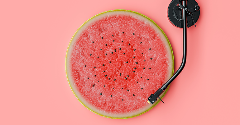News
Trends in The Beverage Market
29 Oct 2013Long gone are the days when beverages simply provided hydration. Beverage manufacturers are now jostling for a market edge in a crowded and vibrant market-place, which includes cold drinks, hot drinks, carbonated drinks, sports drinks, energy drinks, fruit juices, squashes and cordials, dairy-based drinks – the list goes on. Faced with such choice, consumers increasingly […]

Long gone are the days when beverages simply provided hydration. Beverage manufacturers are now jostling for a market edge in a crowded and vibrant market-place, which includes cold drinks, hot drinks, carbonated drinks, sports drinks, energy drinks, fruit juices, squashes and cordials, dairy-based drinks – the list goes on. Faced with such choice, consumers increasingly demand high quality, competitively-priced beverages, which deliver that ‘something extra’. This demand challenges beverage manufacturers to produce drinks that stand out from the multitude of competitor products.
Improving the consumer experience via the addition of flavourings is popular, and examples include flavoured waters, flavoured carbonated beverages, use of exotic fruit flavours, and flavoured lagers and ciders. However, more novel concepts are also emerging, such as bubble tea (a drink invented in Taiwan containing chewy Tapioca balls), hot sparkling drinks (Coca Cola Japan) and the use of aromas (PepsiCo).
Health also remains important, but with so many light/lite product versions available, it is unlikely that this will be enough to hold consumer interest for long. The perceived healthiness of low/no calorie beverages may also be somewhat negatively influenced by recent reports that consumption of drinks containing sweeteners could make you gain weight or increase the risk of developing diabetes. Despite a lack of convincing evidence from randomised controlled trials (the gold standard in clinical trials) to support these claims, this type of media message can be enough to dissuade consumers – as seen with aspartame.
Another approach to producing healthy beverages includes the addition of functional ingredients. This might include fortification with micronutrients, or perhaps the inclusion of novel ingredients. Key advantages when using beverages to deliver functionality include regular consumption (important to deliver benefits), high bioavailability (usually no complex matrix to impair ingredient absorption) and likely consumer acceptance of drinks as a delivery mechanism for health benefits.
Sports and energy drinks are also very popular with consumers. Sports drinks, aimed at athletes, typically focus on high protein and/or high energy and electrolyte content, although the provision of light options appears popular with the female market and those trying to control their weight. Energy drinks usually provide a high sugar content, as well as non-calorific energy sources e.g. caffeine, glucuronolactone, taurine, guarana and B-vitamins.
Consumption of sugar-sweetened beverages (SSBs), such as energy drinks, sweetened fruit juice, sweetened water etc. has been linked with weight gain and other health issues. Recent scientific reviews and meta-analyses seem to support this link, perhaps prompting an ethical question to manufacturers of SSBs. Many appear to be responding with changes in advertising practices and by offering healthier alternatives – in short, offering the consumer an informed choice.
Finally, the demand for clean label products is ever-increasing. A recent trend is the release of lower calorie beverages containing steviol glycosides, which may be perceived by the consumer as a natural sweetener. However, despite the hype surrounding steviol glycosides, they pose a number of technical issues to manufacturers (in particular their taste profile), and their extraction process prevents them from being truly natural.
There is clearly still a lot of opportunity for innovation in the beverage sector, in particular in the search for new, natural sweeteners whose taste profile more closely meets that of sugar.
Related news

Retail landscape lacks nutritious and affordable food, says ATNi
30 Dec 2025
A rapid increase in modern food retail has given retailers growing influence over consumer diets, according to global non-profit ATNi’s latest assessment.
Read more
Debate over ban on ‘meaty’ names for plant-based products reaches stalemate
26 Dec 2025
The debate over a ban on plant-based products using “meaty” terms has reached a stalemate, leaving manufacturers in limbo and still facing overhauls to their marketing and packaging.
Read more
Multi-sensory food and drink products to gain traction in 2026
16 Dec 2025
Trend forecasters predict that sensory elements will play a larger role, helping food and beverage brands differentiate themselves in a competitive market in 2026.
Read more
Big appetite for M&A between European and US food and drink companies
3 Dec 2025
Persistent tariffs on EU food and beverage exports have helped drive record levels of M&A activity between European and US companies this year, according to analysis by ING.
Read more
Non-UPF Program extends certification scheme to entire food industry
30 Nov 2025
The Non-UPF Program has extended its certification scheme to the wider food sector, championing a move towards healthier consumption habits.
Read more
Lancet study links UPFs to chronic disease risk
26 Nov 2025
UPFs are consistently associated with an increased risk of diet-related chronic diseases, according to a comprehensive review of global evidence in The Lancet .
Read more
Concerns swirl around cinnamon’s compliance with EU law
25 Nov 2025
Cinnamon may be a top functional ingredient, but it needs stronger protocols to ensure it meets EU food safety laws and quality standards, say researchers.
Read more
Oat Barista: Innovation for game-changing beverages
20 Nov 2025
Oat Barista is a clean label, sustainable, and innovative drink base specifically designed to create the perfect foam in one single ingredient.
Read more
How younger consumers are redefining ingredient choices and rejecting brand loyalty
18 Nov 2025
Gen Z and millennial consumers’ preferences for transparency, functionality, and purpose are “redefining the very nature of consumption itself”, says SPINS.
Read more
Hybrid formats and flexible positioning to disrupt category norms in 2026
17 Nov 2025
Trend forecasters expect food and drink to move more fluidly across occasions, functions, and formats as consumers seek versatility, novelty, and convenience.
Read more